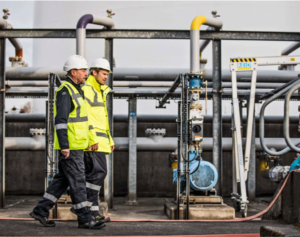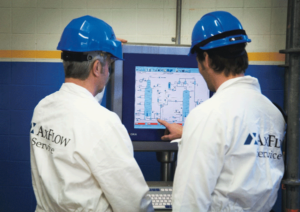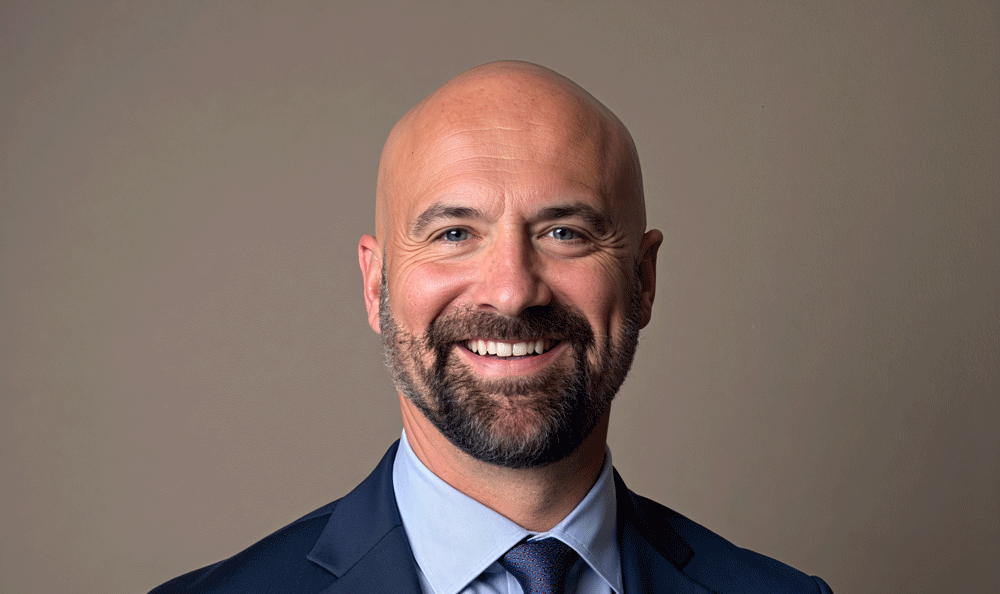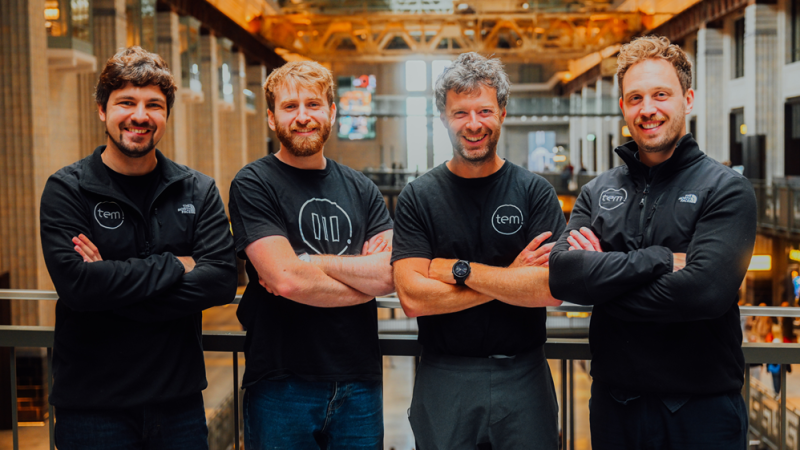Pumps, valves, heat exchangers, separators and homogenisers, are all associated with Fluid Transfer and there is no shortage of industries that rely on that technology. From the marine industry to the chemical sector, from oil and gas to food and beverages, everyone needs to transfer fluid and or energy from one place to another. That is where distribution business and service provider AxFlow UK comes in. The company is part of Axel Johnson International, a Swedish, family-owned business with an annual turnover of more than 1.6 billion euros. From its branches in Huddersfield, Retford, Aberdeen and Slough, AxFlow UK employs 180 people, achieving a turnover of £45 million.
AxFlow represents its carefully chosen OEMs in 27 countries across Europe, Australasia and South Africa, stocking in the region of 17 million euros worth of components in its European distribution centre in the Netherlands. It is this that allows AxFlow to offer timely delivery in support of its local service centres so that its customers receive best in class service.
 Hot Right Now
Hot Right Now
But when your goal is to offer best in class service, the goalposts are always going to be moving.
“AxFlow has recently responded to the demand from the market for improved access to information and aftermarket support,” says Neil Langdown, Managing Director of AxFlow UK. “By providing IoT predictive maintenance platforms for both pumps and heat exchangers, we empower our customers to improve their production uptime by reducing equipment failure.”
This sort of support is made possible because AxFlow UK pays close attention to the latest technological developments. But as a distributor, it has different priorities than the manufacturers it is distributing for.
“Over recent years we have seen a lot of hype and interest in IoT technology,” Langdown tells us.
“Manufacturers are not necessarily able to offer the level of aftermarket support required by the end users. When it comes to IoT there is a lot of rhetoric out there, but customers are not seeing much in terms of deliverables. However, our customers require that kind of preventative maintenance and failure analysis. We realised that there was a role for us to play there.”
That is why AxFlow UK developed its own pump condition monitor, to provide customers with real time data and keep AxFlow informed on how its pumps are operating and help them estimate when failures might occur based on analysis. We also offer real time online leak detection for plate heat exchangers that can estimate the size of a leak and when it will need repairing.
A Warm Welcome
Technology is not the only thing that changes. The labour market has also undergone some major transformations in recent years, and AxFlow UK has adapted to that too. AxFlow has embraced hybrid working, allowing the firm to widen its recruitment pool and attract the best talent into the business.
“We have changed the way we measure, monitor and manage our workforce,” Langdown tells us.
Like most companies, AxFlow traditionally measured its workers’ input, such as time spent at work. But it is harder to do that in a hybrid working situation than in an office environment.
“I have heard stories of some companies that measure the number of keystrokes per hour, to evaluate employee productivity, and when you speak to people in that environment, they tell you they play the game by clicking the mouse button,” Langdown says. “We measure output, not input. It is built on trust. We are employing very capable people who are well trained at their work.”
Langdown points to AxFlow’s application engineers as an example. AxFlow measures the number of quotations produced and the quality of those quotations, irrespective of the number of hours a given engineer has worked. This gives employees flexibility for childcare and family life. If staff complete their work in the evening, Langdown does not see it as an issue as long as the work is done.
“We measure output, not input. It is built on trust. “he says simply.
Maintaining AxFlow’s culture has become more important than ever with its recent acquisition of food equipment specialists, Moody Direct, effectively doubling the size of the business overnight. This has enabled AxFlow to massively increase its on-site service capabilities and grow its enhanced heat exchange service offering.
“We are running both companies separately, as separate legal entities,” Langdown tells us. “We are looking to work together to produce synergies, as opposed to forcing an integration. From a cultural perspective, fortunately, Moody’s customer-centric culture gels well with ours. Any integration would be an evolution over the next few years, rather than a revolution.”
 The Long View
The Long View
This long-term, sustainable approach is in character for AxFlow. It can also be seen in the company’s sustainability objectives. It pursues those objectives both internally, and in how it supports its customers.
“AxFlow was recently awarded a contract to service and part retrofit a dock pump for a customer in the UK,” Langdown shares. “That work will result in improved efficiency, driving an energy saving and a massive CO₂ reduction.”
Langdown is the first to acknowledge that AxFlow is far from the only company to experience a renewed focus on environmental issues in recent years, but this company is walking the walk. It has installed solar panels, provided its salesforce with electric vehicles, and reduced its waste packaging. But right now AxFlow’s main focus is on the products it sells.
“Pumps are high energy using equipment by definition, so we have been looking to improve efficiencies,” Langdown says. “We had a dry dock client with large dewatering pumps that were 70 years old and very inefficient, and we were contracted to retrofit and service these units. On the back of that, we have calculated energy savings/ CO₂ reductions, equivalent to taking 234 cars off the road. In the past, the environmental considerations may have been little more than lip service, but now it is impacting buying decisions. Our solutions are more energy efficient and that is helping us to win contracts”
When we talk to Langdown about the future, he once again talks about that long view.
“Axel Johnson Group take a long-term view to its business, and this is also true when it comes to inorganic growth,” Langdown says. “AxFlow expects to continue to grow both organically and via acquisitions over the coming years. When you look at some US-owned private equity pump businesses they tend to be very quarterly focused. However, sometimes that can have a detrimental impact on long-term continuous improvement. Our parent company is family-owned so they take a different view. They believe in doing the right thing, and if it takes a year or two to see the benefit then that is okay. In terms of day-to-day business decisions, we are prepared to make a choice that will not necessarily maximise profit for a short-term gain, if it enables a more sustainable approach to business growth.”






